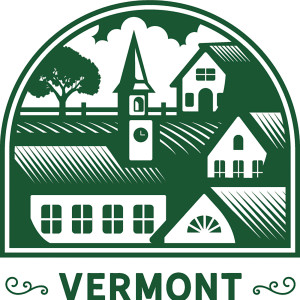
10.4K
Downloads
56
Episodes
”Life Became Very Blurry” is a podcast sharing the voices of Vermonters as they recall the experience of COVID-19. It is based on a three year project collecting oral histories and other records of the pandemic, and released in March 2025 for the fifth anniversary of the first lockdown. This podcast feed is home to a series of audio productions from the Vermont Historical Society, which believes that understanding the past changes lives and builds better communities. Our purpose is to engage Vermonters and Vermonters-at-Heart with outstanding collections, state-wide outreach, and dynamic programming.
”Life Became Very Blurry” is a podcast sharing the voices of Vermonters as they recall the experience of COVID-19. It is based on a three year project collecting oral histories and other records of the pandemic, and released in March 2025 for the fifth anniversary of the first lockdown. This podcast feed is home to a series of audio productions from the Vermont Historical Society, which believes that understanding the past changes lives and builds better communities. Our purpose is to engage Vermonters and Vermonters-at-Heart with outstanding collections, state-wide outreach, and dynamic programming.
Episodes

Tuesday Oct 27, 2020
Episode 37: Town Bands
Tuesday Oct 27, 2020
Tuesday Oct 27, 2020
For more background on this episode, please visit: https://vermonthistory.org/town-bands-1946

Thursday Oct 22, 2020
Episode 36: Senator Ralph Flanders
Thursday Oct 22, 2020
Thursday Oct 22, 2020
For more background on this episode, please visit: https://vermonthistory.org/senator-ralph-flanders-1946

Tuesday Oct 20, 2020
Episode 35: Electricity Comes to Rural Vermont
Tuesday Oct 20, 2020
Tuesday Oct 20, 2020
For more information on this episode, please visit: https://vermonthistory.org/turning-on-the-lights-1943

Thursday Sep 03, 2020
Episode 34: World War II at Home
Thursday Sep 03, 2020
Thursday Sep 03, 2020
Even though the United States did not officially enter World War II until December 8, 1941, Vermonters had been involved—mostly indirectly—in the war effort for over a year. On September 1940, the Secretary of War ordered units of the Vermont National Guard into active duty; and in October—following the enactment by Congress of the Selective Service Act, creating the first peace-time draft in U.S. history—young Vermont men began receiving draft notices. Over the winter of 1940-1941, facilities at Fort Ethan Allen were expanded to house the 1,700 men of the Guard and their equipment. Meanwhile, efforts were underway to gain support for President Franklin Delano Roosevelt’s Lend-Lease plan to assist those nations resisting Germany’s army by providing arms and defense materials, and some Vermont industries began shifting over to war-related production.
For more background on this episode, please visit: https://vermonthistory.org/world-war-ii-at-home-1942

Thursday Aug 27, 2020
Episode 32: Fighting Silicosis, Dust Control in the Granite Industry
Thursday Aug 27, 2020
Thursday Aug 27, 2020
For more background on this episode, please visit: https://vermonthistory.org/fighting-silicosis-dust-control-in-granite-industry-1937

Tuesday Aug 25, 2020
Episode 31: The OWLS, Vermont's Women Legislators
Tuesday Aug 25, 2020
Tuesday Aug 25, 2020
The Vermont Women's Legislative Caucus began its political life as the Vermont Chapter of the Order of Women Legislators, the OWLs. In June 1936, the women then in the Vermont legislature met at the Fletcher Farm in Proctor for a two day organizational meeting. Following the lead of Julia Emery of Connecticut, founder of the first OWLs group in the nation in 1927, the Vermont legislators joined together to form an organization, which, according to the Rutland Herald reported at the time, "is something else again, a legislative noman's land, as it were, social, informative, discursive, and instructive in its scope." Twelve years later, Vermont participated in forming the National OWLs, receiving the support of President Franklin D. Roosevelt.
For more background on this episode, visit: https://vermonthistory.org/the-owls-vermonts-women-legislators-1936

Thursday Aug 13, 2020
Episode 30: Legislative Reapportionment
Thursday Aug 13, 2020
Thursday Aug 13, 2020
For more background on this episode, visit: https://vermonthistory.org/legislative-reappointment-1965

Tuesday Aug 11, 2020
Episode 29: The WPA
Tuesday Aug 11, 2020
Tuesday Aug 11, 2020
For more background on this episode, visit: https://vermonthistory.org/wpa-1935

Thursday Jul 30, 2020
Episode 28: The Early Days of Skiing
Thursday Jul 30, 2020
Thursday Jul 30, 2020
Telling the story of the development of the sport of skiing in Vermont often begins in 1934, when the first rope tow, a contraption powered by a Model-T Ford truck, was set up on a slope at Clint Gilbert’s farm in Woodstock. This mechanized apparatus did, indeed, launch a new era as well as a new technology in the history of skiing. But the story begins with the coming of skis to the north country that involved two Vermonters not often enough mentioned in today’s skiing memoirs: Fred Garey of Thetford and Fred H. Harris of Brattleboro.
For more background on this episode, visit: https://vermonthistory.org/early-days-of-skiing-1934

Wednesday Jul 29, 2020
Episode 27: The Vermont Symphony Orchestra
Wednesday Jul 29, 2020
Wednesday Jul 29, 2020
For more background on this episode, please visit: https://vermonthistory.org/symphony-vso-1934
